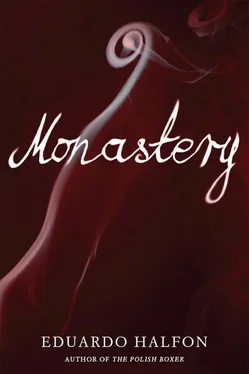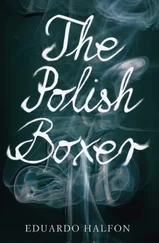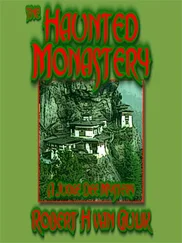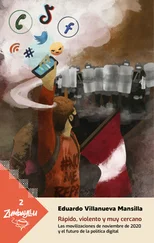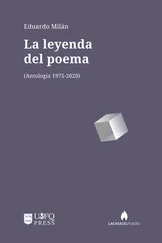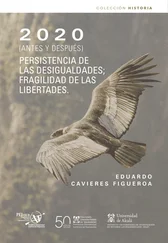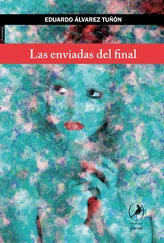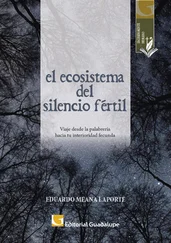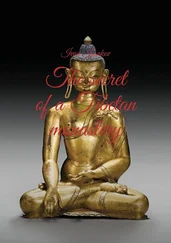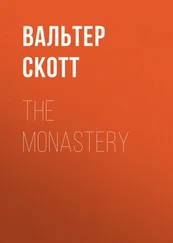The young man was in a bamboo cage, lying in a puddle of mud and water or possibly urine. I could hear all the flies buzzing around him. This one turned out bad, whispered Don Tulio when he saw me standing next to him, but I didn’t know whether it was a moral or a physical judgment, whether he was referring to some perverse behavior or alcohol habit, to a nervous condition or a mental deficiency. I didn’t want to ask. I watched the young man in silence through the thick bamboo bars. His pants were wet and half-open. His chin was white with saliva, his chest covered in small fistulas and sores, his bare feet muddy and filthy, his eyes red, tearful, almost closed. I thought that a poor indigenous family had no choice but to keep him away from the world, to remove him from the world, building him a bamboo cage. I thought that while I could take a day off and drive two hours from the capital to a beach on the Pacific for no other reason than to go for a swim, this young man was a prisoner to something, to some kind of evil, or alcohol, or dementia, or poverty, or something much bigger and more profound. I wiped the sweat from my forehead and eyes. Maybe because of the crystalline coastal light, the cage suddenly looked sublime to me. Its craftsmanship. Its shape and resilience. I came a little closer and gripped two of the bamboo bars tightly. I wanted to feel the bamboo in my hands, feel the warmth of the bamboo in my hands, feel the reality of the bamboo in my hands, and perhaps not feel my own indifference, nor the indifference of an entire country. The young man writhed briefly in the puddle, stirring up the swarm of flies. His moans were now docile, resigned, like those of an animal that has been mortally wounded. I let go of the two bamboo bars, turned around, and walked to the sea.
I arrived at the Martínez housewell into the afternoon, at just that moment when the sky recedes, and the street dogs bark on their corners, and at the house next door an evangelical preacher, aided by a broken microphone and a loudspeaker, starts up his frenzied shouting and chanting.
The door was opened by a short, dark, elderly woman with a friendly face and a blue apron she’d probably been wearing all day. You’re Señor Halfon, she said. Please come in. I’m Ernestina, Iliana’s mother, she said, holding out her hand. Iliana and her father won’t be long, she told me. They just went to check on his coffee plants, not far at all.
Doña Ernestina closed the door behind me and we stood there in a dark narrow hallway. To one side was a leatherette sofa. To the other, directly across from the sofa, the wall was covered with small family photos, now faded and matte; also on the wall were four large high-school diplomas, all in a row, all proud in their wood and imitation gold-leaf frames. Doña Ernestina talked me through each photo, pointing as she explained — over the evangelical shouting and chanting — which of her four children was in each one, and at what age, and where they were, and what they were doing, and whose piñata it was. You see, my husband, Juan, used to love taking pictures, she said nostalgically. Before, she said, her voice suddenly a bit hoarse, and she said no more. But that last word seemed to hang there, framed among all of the photos and diplomas, like a gateway to something, perhaps to another time, another memory, another corridor, one even darker and narrower, one with no way out.
The Martínez home — humble and immaculate — was on a fairly steep hill in La Libertad, a hard-to-reach town with a temperate climate in the Guatemalan highlands, in the department of Huehuetenango, just a few kilometers from the Mexican border. A notoriously dangerous and violent part of the country: in the past few years, because of narcotrafficking; during the armed conflict of the seventies and eighties, because of military abuses and massacres; at the turn of the twentieth century, because of the revolutionary wars fought against president and despot Manuel Estrada Cabrera (years later, Miguel Angel Asturias would use him as the model dictator for his novel, El Señor Presidente ). In 1915, the very town of La Libertad, then called Florida, was the setting for the last revolutionary battle against Estrada Cabrera’s army. The revolutionaries didn’t win that last battle, but they succeeded in establishing peace and freedom in the region, and in 1922, in their honor, once Estrada Cabrera was out of power — before dying, he’d been declared insane by Congress and forced to resign — the name of the town was officially changed to La Libertad.
The evangelist’s sermon suddenly ratcheted up. The front door opened. Iliana walked in smiling, wiping her just-washed hands on the legs of her canvas trousers. She apologized for being late and I said that there was no need, that her mother had kept me entertained. Isn’t that right, Doña Ernestina? And Doña Ernestina blushed slightly. Did you find Pensión Peñablanca? Iliana asked, and I said that I had, that I appreciated it, that I’d left the sapphire-colored Saab there along with my belongings. It’s the only pensión in town, she said, but it’s not bad. And besides, she said, the co-op is close by, right on one side of the main plaza, and so is Doña Tuti’s café. You can have breakfast at her café, no worries. It’s a safe bet. Just ask someone where Doña Tuti’s is, she said. Because there’s no sign.
She was a small friendly woman, Iliana, with skin even darker than her mother’s. She must have been thirty or thirty-five. I’d pictured her much older. Perhaps because of the seriousness of her e-mails. Or perhaps because of the enormous responsibility and quality of her work managing the local coffee growers’ cooperative: the first co-op in the region, set up in 1965 by a group of men — including her father, Juan Martínez — who owned small coffee plots. I asked Iliana where her father was, and she was about to say something, when Doña Ernestina raised her arm, as though requesting permission to speak, and whispered: That’s Osmundo. Her index finger pointed to the photo of a young couple in a garden, he seated in a plastic chair, she on his lap. There was a silence, both from us and in the neighbor’s evangelical cries. As though he too had heard Doña Ernestina whisper and was waiting for her to keep going. But Iliana was the one to break the silence. That’s Osmundo and his fiancée, she said. Osmundo was my brother, she said. He was murdered.
The evangelist began chanting about God and His mercy and Doña Ernestina said dinner was almost ready.
HIS NAME WAS HITLER. He was splayed out on the kitchen floor tile, before the wood-fire stove that was flickering and crackling and heating the comal. I crouched down. I scratched his chin and heard him purr, and only then did I discover a short black mustache that looked penciled in below his little white snout.
There were five sisters. One was making tortillas and greeted me from the comal, smiling timidly as she clapped out a tiny ball of masa. Two more were slicing lemons and avocados. Another darted in and out, chasing her three- or four-year-old daughter; she lived with her husband in the house across the way, she explained, on the other side of the street. Iliana told me to sit down, pointing to a small wooden bench painted red and pushed up against the wall. I thanked her, taking in the women’s serene choreography, and thinking about my sister, and my brother, and our own choreography, and thinking that that smell — coffee, smoke, pine, coal, ground maize — was the closest thing there was to the smell of family.
Juan Martínez walked slowly into the kitchen. He was wearing an orange shirt — neon orange, fiery orange, even fierier against his toasted skin. Iliana introduced us and he held out his hand in silence. His hands were leathery campesino hands. His thin body gave the false impression of fragility. He had a sad withdrawn look, and it was a moment before I realized it was the same look Iliana had. He invited me to sit beside him on the small wooden bench.
Читать дальше
